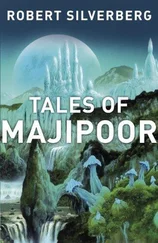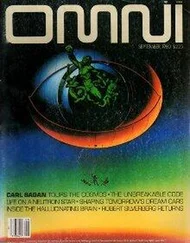Robert Silverberg - With Caesar in the Underworld
Здесь есть возможность читать онлайн «Robert Silverberg - With Caesar in the Underworld» весь текст электронной книги совершенно бесплатно (целиком полную версию без сокращений). В некоторых случаях можно слушать аудио, скачать через торрент в формате fb2 и присутствует краткое содержание. Год выпуска: 2003, ISBN: 2003, Издательство: HarperCollins, Жанр: Альтернативная история, на английском языке. Описание произведения, (предисловие) а так же отзывы посетителей доступны на портале библиотеки ЛибКат.
- Название:With Caesar in the Underworld
- Автор:
- Издательство:HarperCollins
- Жанр:
- Год:2003
- ISBN:978-0-380-97859-5
- Рейтинг книги:5 / 5. Голосов: 1
-
Избранное:Добавить в избранное
- Отзывы:
-
Ваша оценка:
- 100
- 1
- 2
- 3
- 4
- 5
With Caesar in the Underworld: краткое содержание, описание и аннотация
Предлагаем к чтению аннотацию, описание, краткое содержание или предисловие (зависит от того, что написал сам автор книги «With Caesar in the Underworld»). Если вы не нашли необходимую информацию о книге — напишите в комментариях, мы постараемся отыскать её.
With Caesar in the Underworld — читать онлайн бесплатно полную книгу (весь текст) целиком
Ниже представлен текст книги, разбитый по страницам. Система сохранения места последней прочитанной страницы, позволяет с удобством читать онлайн бесплатно книгу «With Caesar in the Underworld», без необходимости каждый раз заново искать на чём Вы остановились. Поставьте закладку, и сможете в любой момент перейти на страницу, на которой закончили чтение.
Интервал:
Закладка:
Faustus glanced toward the Caesar. His face was chalk white, as though he had spent his whole life in these underground caverns, and his eyes had a hard, frightening glitter to them that gave them the look of brilliantly polished sapphires. Those stony eyes were terrifying to behold.
A man in the loose yellow robes of some Asian priesthood came running toward them, looking half unhinged by fear. He stumbled up against Maximilianus in the narrow hallway and tried to shoulder his way past, but the Caesar, seizing the man by both forearms and holding him immobilized, thrust his face into the other’s and demanded to know the news. “His Majesty—” the man gasped, goggle-eyed. He had a thick Syrian lisp. “Dead. They have lit the great bonfire before the palace. The Praetorians have gone into the street to maintain order.”
Muttering a curse, Maximilianus shoved the Syrian away from him so vehemently that the man went ricocheting off the wall, and turned his gaze toward Faustus. “I must go to the palace,” the Caesar said, and without another word turned and ran, leaving Faustus and Menandros behind as he vanished in furious long-legged strides toward the Via Subterranea.
Menandros looked overwhelmed by the news. “We should not be here either,” he said.
“No. We should not.”
“Are we to go to the palace, then?”
“It could be dangerous. Anything can happen, when an Emperor dies and the heir apparent isn’t on the scene.” Faustus slipped his arm through the Greek’s. Menandros appeared startled at that, but seemed quickly to understand that it was for the sake of keeping them from being separated in the growing chaos of the underground city. Thus linked, they set out together for the nearest exit ramp.
The news had spread everywhere by now, and hordes of people were running madly to and fro. Faustus, though his heart was pounding from the exertion, moved as quickly as he was able, virtually dragging Menandros along with him, using his bulk to shove anyone who blocked his path out of the way.
“The Emperor is dead!” the endless chorus cried. “The Emperor is dead!” As he came forth blinking into the daylight, Faustus saw the look of stunned shock on every face.
He felt a little stunned himself, though Emperor Maximilianus’s passing had not exactly come as a bolt out of the blue to him. But the old man had held the throne for more than forty years, one of the longest reigns in Roman history, longer even than Augustus’s, perhaps second only to that of his grandfather the first Maximilianus. These Etruscan Emperors were long-lived men. Faustus had been a slender stripling the last time the Imperial throne had changed hands, and that other time the succession had been handled well, the magnificent young prince who was to become Maximilianus II standing at the side of his dying father in his last moments, and going immediately thereafter to the temple of Jupiter Capitolinus to receive the homage of the Senate and to accept the badges and titles of office.
This was a different situation. There was no magnificent young heir waiting to take the throne, only the deplorable Prince Heraclius, and Heraclius had so contrived matters that he was not even at the capital on the day of his father’s death. Great surprises sometimes happened when the throne became vacant and the expected heir was not on hand to claim it. That was how the stammering cripple Claudius had become Emperor when Caligula was assassinated. That was how Titus Gallius had risen to greatness after the murder of Caracalla. For that matter, that was the way the first of the Etruscans had come to power, when Theodosius, having outlived his own son Honorius, had finally died in 1168. Who could say what shifts in the balance of power might be accomplished in Roma before this day reached its end?
It was Faustus’s duty now to get Justinianus’s ambassador safely back to the Severan Palace, and then to make his own way to the Chancellery to await the developments of the moment. But Menandros did not quite seem to grasp the precariousness of the situation. He was fascinated by the tumult in the streets, and, feckless tourist that he was at heart, wanted to head for the Forum to watch the action at first hand. Faustus had to push the bounds of diplomatic courtesy a little to get him to abandon that foolhardy idea and head for the safety of his own quarters. Menandros agreed reluctantly, but only after seeing a phalanx of Praetorians moving through the street across from them, freely clubbing anyone who seemed to be behaving in a disorderly fashion.
Faustus was the last of the officials of the Chancellery to reach the administrative headquarters, just across the way from the royal palace. The Chancellor, Licinius Obsequens, greeted him sourly. “Where have you been all this while, Faustus?”
“With the ambassador Menandros, touring the Underworld,” Faustus replied, just as sourly. He cared very little for Licinius Obsequens, a wealthy Neapolitan who had bribed his way to high office, and he suspected that under the new Emperor neither he nor Licinius Obsequens would continue to hold their posts at the Chancellery, anyway. “The ambassador was very eager to visit the chapel of Priapus, and other such places,” Faustus added, with a bit of malice to his tone. “So we took him there. How was I to know that the Emperor was going to die today?”
“ We took him, Faustus?”
“The Caesar Maximilianus and I.”
Licinius’s yellowish eyes narrowed to slits. “Of course. Your good friend the Caesar. And where is the Caesar now, may I ask?”
“He left us,” said Faustus, “the moment news reached us underground of His Majesty’s death. I have no information about where he might be at the present time. The Imperial palace, I would imagine.” He paused a moment. “And the Caesar Heraclius, who is our Emperor now? Has anyone happened to hear from him?”
“He is at the northern frontier,” Licinius said.
“No. No, he isn’t. He’s off at his hunting lodge behind Lake Nemorensis. He never went north at all.”
Licinius was visibly rocked by that. “You know this for a fact, Faustus?”
“Absolutely. I sent a message to him there, just the other night, and he came back to the city that evening and met with the ambassador Menandros. I was there, as it happens.” A look of sickly astonishment came over Licinius’s jowly face. Faustus was beginning to enjoy this more than somewhat. “The Caesar then went back to his forest preserve yesterday morning. Early today, when I was informed of His Majesty’s grave condition, I sent a second message to him at the lake, once more summoning him to Roma. Beyond that I can tell you nothing.”
“You knew that the Caesar was hunting, and not at the frontier, and never reported this to me?” Licinius asked.
Loftily Faustus said, “Sir, I was wholly preoccupied with looking after the Greek ambassador. It is a complicated task. It never occurred to me that you were unaware of the movements of the Caesar Heraclius. I suppose I assumed that when he reached Roma the night before last he would take the trouble to meet with his father’s Chancellor and ascertain the state of his father’s health, but evidently it didn’t occur to him to do that, and therefore—”
Abruptly he cut his words short. Asellius Proculus, the Prefect of the Praetorian Guard, had just shouldered his way into the room. For the Praetorian Prefect to set foot in the Chancellery at all was an unusual event; for him to be here on the day of the Emperor’s death verged on the unthinkable. Licinius Obsequens, who was starting to look like a man besieged, gaped at him in consternation.
“Asellius? What—”
“A message,” the Praetorian Prefect said hoarsely. “From Lake Nemorensis.” He signaled with an upraised thumb and a man in the green uniform of the Imperial courier service came lurching in. He was glassy-eyed and rumpled and haggard, as though he had run all the way from the lake without pausing. Pulling a rolled-up dispatch from his tunic, he thrust it with a trembling hand toward Licinius Obsequens, who snatched at it, opened it, read it through, read it again. When the Chancellor looked up at Faustus his plump face was sagging in shock.
Читать дальшеИнтервал:
Закладка:
Похожие книги на «With Caesar in the Underworld»
Представляем Вашему вниманию похожие книги на «With Caesar in the Underworld» списком для выбора. Мы отобрали схожую по названию и смыслу литературу в надежде предоставить читателям больше вариантов отыскать новые, интересные, ещё непрочитанные произведения.
Обсуждение, отзывы о книге «With Caesar in the Underworld» и просто собственные мнения читателей. Оставьте ваши комментарии, напишите, что Вы думаете о произведении, его смысле или главных героях. Укажите что конкретно понравилось, а что нет, и почему Вы так считаете.












